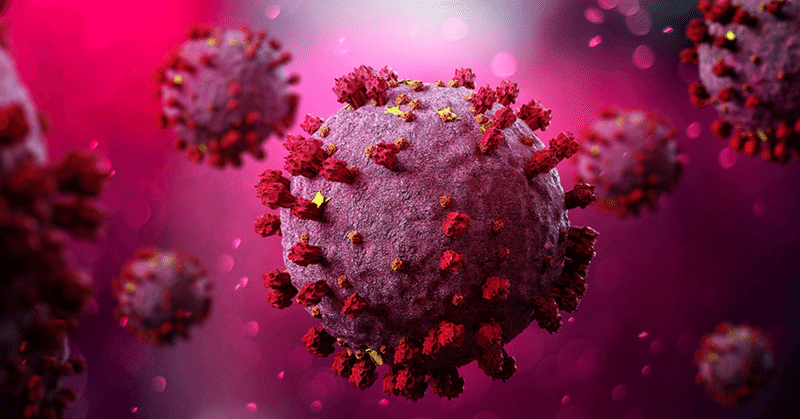
ファクト・チェックを謳うメディアの信憑性 その10
ファクトチェック:オクラホマ州の病院はイベルメクチンの過剰摂取でバックアップされていない...すべてはフェイクニュースメディアが押した嘘だった
2021年9月10日(金) by: Mary Villareal
(ナチュラルニュース) 主要メディアの報道では、オクラホマ州でイベルメクチンの過剰摂取事例が増加していることに注目している。しかし、これらの主張は誤りであることが判明しました。
イベルメクチンを自己投与して過剰摂取した人がいたため、COVIDへの使用をやめるよう求める声がありましたが、これは他の薬剤でも前代未聞のことです。
イベルメクチンは海外の医療機関でも推奨されており、その効果は顕著であることから、今回の報道に疑問を呈する声もあります。
オクラホマ州のニュースチャンネルKFORは、COVID-19の治療薬として期待されている抗寄生虫薬イベルメクチンを過剰摂取した患者で、州内の農村部の病院が一杯になる危険性があると報じました。
この話は流行し、主要なメディアを駆け巡りましたが、その主張は実質的には誤りです。
この記事の主旨は、オクラホマ州の医師が、地元の病院の過密状態をイベルメクチンの過剰摂取の氾濫に起因すると述べた一連の引用文からのもので、イベルメクチンの治療薬は、それを摂取した人々や医療システム全般にとって危険なものであるという意味合いが込められています。
しかし、オクラホマ州の病院にかかっている負担が、イベルメクチンの過剰摂取によるものであると考える根拠はほとんどありません。地元の病院のある医師は、イベルメクチンの過剰摂取を治療したこともなければ、患者を追い出さなければならなかったこともないと指摘しています。
Rolling Stone誌の最新レポートでは、8月の1ヶ月間に米国内で459件のイベルメクチンの過剰摂取があったとしていますが、州ごとの内訳は明らかにしていません。(関連記事 FACT CHECK:Rolling Stone社は、病院がイベルメクチンの過剰摂取患者で溢れていると嘘をついていました)
しかし、オクラホマ州ではCOVID-19の症例が大量に発生しており、7日間の平均で1,528件の入院が発生しています。このことから、病院のベッド数が不足しているとすれば、イベルメクチンの過剰摂取ではなく、COVID-19の感染による症例である可能性が高いと考えられます。
1970年代後半に動物用医薬品として導入されたイベルメクチンは、特定の寄生虫疾患に有効であることが判明し、2015年にノーベル医学賞を受賞しました。COVIDの治療薬として世界保健機関(WHO)から正式に承認されているわけではありませんが、現在、人々はこの薬を手に入れようと躍起になっています。
イベルメクチンの処方はここ数週間で急増しており、米国疾病対策センター(CDC)の指摘によると、パンデミック前の基準値である週平均3,600件に対し、8月中旬には週平均88,000件以上の処方が行われています。
一部の薬局では、イベルメクチンの不足が報告されていますが、最大のリスクは、家畜用の製品を服用した人が、適切な量よりも多くの量を摂取してしまうことにあります。動物用の1回の服用量は、人間に承認されている量の10~15倍になることもあります。
イベルメクチンはCOVID-19の治療に使用できますか?
その有効性にもかかわらず、イベルメクチンはCOVID-19患者の治療にFDAから承認されていません。そのため、臨床試験の一環として研究環境での使用が推奨されます。さらに、動物用として承認されているイベルメクチン製品は、大動物を治療するために処方されており、ヒト用として承認されている量よりも高濃度のイベルメクチンを含んでいるため、ヒトが服用することはできません。
いくつかの研究では、イベルメクチンが実験室でウイルスの複製を阻害することが示されており、この薬の安全性プロファイルは良好です。
ある研究の主任研究員は、彼のグループがCOVID-19に対するイベルメクチンの有効性を判断するのに十分な証拠を作成し、その使用に関連する利点があるかどうかを判断したいと述べています。
イベルメクチンは、歴史的に人や家畜の寄生虫感染症の治療に用いられてきた高価で入手しやすい薬剤です。COVID-19に対するワンダードラッグとして注目され、世界中で受け入れられましたが、具体的には中南米、南アフリカ、フィリピン、インドで使用されました。
COVID-19関連の最新情報はPandemic.newsでご覧いただけます。
ソースは以下の通りです。
ライフサイトニュース・ドットコム
Reason.com
NYTimes.com
Drugs.com
原文:
Fact check: Oklahoma hospitals NOT backed up due to ivermectin overdose… it was all a lie pushed by the fake news media
Friday, September 10, 2021 by: Mary Villareal
Natural News) Mainstream media reports have been focusing on the rising cases of overdoses of ivermectin in Oklahoma. However, these claims were found to be false.
While there had been calls for an end to using ivermectin for COVID because people have been self-administering the drug and have overdosed, this is not unheard of for any other drug.
Ivermectin has been endorsed by medical authorities overseas and has demonstrated remarkable effectiveness, so there are some that raised questions regarding the media reports.
KFOR, a news channel in Oklahoma reported that rural hospitals throughout the state were in danger of becoming overwhelmed with patients who have overdosed on ivermectin, an anti-parasitic drug that has been used as a possible treatment for COVID-19.
The story went viral and has circulated through mainstream media; however, its claim is substantially false.
The main point of the stories was from a series of quotes from an Oklahoma doctor who attributed the overcrowding at local hospitals to a deluge of ivermectin overdoses, the implication being that the ivermectin cure was dangerous for people who consumed it, and the medical system in general.
The story confirmed many media biases, but there is little reason to believe that the strain on Oklahoma hospitals is caused by ivermectin overdoses. One doctor from a local hospital noted that they have not treated any ivermectin overdoses, nor have they been forced to turn away patients.
In an updated Rolling Stone report, the publication said that there were 459 cases of ivermectin overdoses in the U.S. during the month of August, but it did not provide a state-by-state breakdown of the cases. (Related: FACT CHECK: Rolling Stone lied about hospitals being full of ivermectin overdose patients.)
However, Oklahoma has been experiencing large numbers of COVID-19 cases, with a seven-day average of 1,528 hospitalizations. This indicates that if hospitals are running out of beds, it is likely that the cases were due to COVID-19 infections, not ivermectin overdoses.
Introduced as a veterinary drug in the late 1970s, it was found to be effective in combating certain parasitic diseases and won the 2015 Nobel Prize for medicine. Though not officially approved by the World Health Organization as a treatment for COVID, people are now clamoring to get their hands on the drug.
Prescriptions for ivermectin have seen a sharp rise in recent weeks, with over 88,000 prescriptions per week in mid-August, compared to the pre-pandemic baseline average of 3,600 per week, as noted by the Centers for Disease Control and Prevention (CDC).
Some pharmacies are also reporting shortages of the drug, however, the biggest risk comes from people who take the livestock product, ingesting higher doses than is appropriate — one veterinary dose is sometimes 10 to 15 times the amount approved for humans.
Can ivermectin be used to treat COVID-19?
Despite its effectiveness, ivermectin is not approved by the FDA to treat COVID-19 patients, and as such, is recommended for use as part of a research setting, as part of a clinical trial. Further, ivermectin products that have been approved for animal use should not be taken by humans as they are formulated to treat large animals and contain high levels of ivermectin than is approved for human use.
Some studies have shown that ivermectin can inhibit virus replication in a lab, and that the medicine has a good safety profile.
A lead investigator in one of the studies said that his group hope to generate enough evidence to determine the effectiveness of ivermectin against COVID-19, and whether or not there are benefits associated with its use.
Ivermectin is an expensive and readily available drug that was historically used to treat parasitic infections in people and livestock. It has been touted as the wonder drug against COVID-19 and was embraced around the world, specifically in Latin America, South Africa, the Philippines, and India.
Read more COVID-19 related updates at Pandemic.news.
Sources include:
LifeSiteNews.com
Reason.com
NYTimes.com
Drugs.com
この記事が気に入ったらサポートをしてみませんか?
